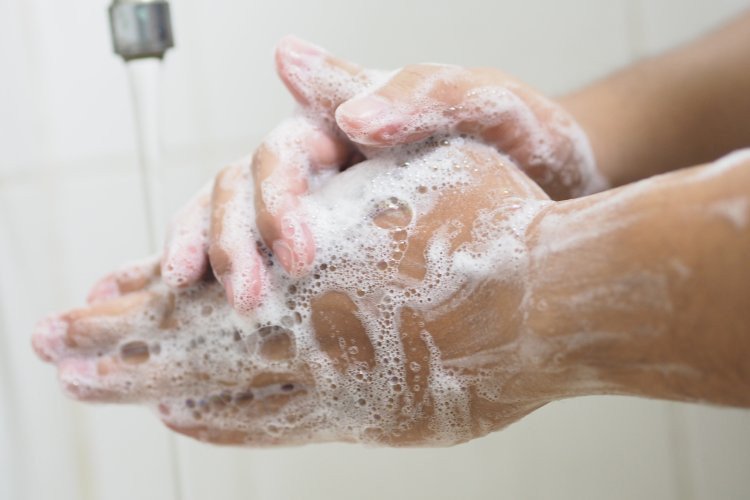Clean hands are essential for healthy living. And how often do you wash your hands with soap? Do you know how to wash your hands properly?
As we know, billions of bacteria accumulate on our hands, which, when ingested, cause various infectious diseases. Therefore, it is very important to wash your hands with soap as often as possible or treat them with antiseptic solutions.
Handwashing was especially popularized in 2020, during the coronavirus pandemic, when the whole world actively observed cleanliness and hygiene. This does not mean that before COVID-19, people washed their hands with soap less often. No! They just began to take a more responsible approach to their health and engage in disinfection more often.
Since 2008, Global Handwashing Day has been celebrated. The joint initiative to approve the holiday as an annual one – on October 15 – belonged to the UN General Assembly, the UNICEF Children’s Fund, and the World Health Organization to disseminate useful information about washing hands with soap. The holiday itself is aimed not only at raising awareness about hand hygiene but also covers global issues of cleanliness of everyone on the planet.
By tradition, on this day, absolutely everyone is reminded once again about the cleanliness of hands and how to properly observe personal hygiene. Leaflets, memos, booklets, brochures are distributed, actions are held to inform the population about the need to wash hands to prevent various diseases.
WHO strongly recommends: if soap and water are unavailable, use a hand sanitizer with an alcohol content of at least 60%.
To protect yourself and your close ones from infections and stop the spread of germs, everyone should follow simple rules: always wash your hands with soap after visiting a bathroom, a crowded place, public transport, or if you cough or sneeze (you should pay special attention to these symptoms and immediately consult a doctor if they worsen). We must have clean hands before touching food or cooking. And, of course, keep in mind (or repeat) – I wash my hands after playing with pets and do not touch my face with dirty hands. We advise you to remember this!
Every human being on Earth carries on their hands more than a million different microorganisms. Moreover, there are 1000 times more of them on wet hands than on dry ones. It is noted that office employees have significantly more microorganisms on their hands than people engaged in physical labor. In addition, male hands turned out to be “cleaner” than female ones. The difference in the amount of pathogenic microflora on the hands is explained by the different acidity of the skin (in women it is lower), different sweating, and hormonal profile.
Let’s remember that the dirtiest surface has always been on bills and coins. It is money that we pass several times a day from hand to hand. The contact between people and money prompted doctors to conduct its complete bacterial analysis. Studies have shown that paper bills may contain micro bacteria of tuberculosis, pathogens of pneumonia, tonsillitis, hepatitis, intestinal infections, Streptococcus aureus, a wide range of pathogens of helminthiasis, etc. Old worn-out bills are much dirtier because they have been in circulation longer. But the bills of greater value turned out to be cleaner than small money since they are less often used. Coins are also less dangerous since metal is less “nutritious” for microorganisms.
According to most experts, regular handwashing with soap helps to remove up to 90% of microorganisms from the skin surface, which can significantly reduce the transmission of infections by household contact. Scientists have proven that such a procedure helps to reduce the level of acute intestinal infections by more than 40%, and respiratory diseases – by almost 25%. Therefore, wash your hands with soap more often and thus, enjoy good health!
The article is based on open sources.
Photo on the page and on the homepage: sakuramos / Фотобанк123RF






















